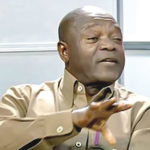Senior lawyers, at the weekend, expressed opposing views over the de-registration of 74 political parties by the Independent National Electoral Commission (INEC).
While some voiced their endorsement for the decision, others pilloried INEC and questioned where it derived the power to so act.
Lawyers, including former senior officials of the Nigerian Bar Association (NBA) and state attorney-general, who spoke with Sunday Tribune, backed the exercise, noting that nothing constitutional harmstrung the commission from weeding “dead” political parties, even if judicial precedent compelled their registration in the first instance.
But a Senior Advocate of Nigeria and human rights lawyer, Ebun-Olu Adegboruwa, disagreed, saying “to de-register political parties for the reasons that they did not win any election is a misconception of the freedom of association.”
Adegboruwa said the argument from INEC that the list of parties was unwieldy and posed logistical challenge was in itself an indictment on the electoral, saying it ought to have exercised its discretionary power at the point of registering the parties.
“It is INEC that was colluding with politicians to be registering portfolio political parties. There are still so many political parties that are in the cooler which politicians in the major parties, when they have fallen out with their godfathers, will just go and bring out certificates of registration that INEC has issued to them for those parties,” he said. (Read full interview on Page 22).
A former NBA vice president, Ubani Monday Onyekachi, felt the “dead” parties were becoming an irritant to the electoral process and couldn’t be happier they are gone.
“Yes, the de-registration, as being claimed in certain quarters, may not be in consonance with the judgment in Gani Fawehinmi’s case, but there are laid-down regulations and if the parties aren’t meeting them, INEC can axe them.
“As political parties, there are certain threshold they must meet in their participation in the election to remain political parties. But these ones were just there. The number of political parties is unnecessarily high in Nigeria.
“That doesn›t mean INEC can engage in unconstitutional acts without a challenge from us. Any abuse will be challenged, like refusing to register a political group that meets the constitutional requirements. Power corrupts and INEC should be careful. But I support them on this,” he said.
Immediate-past attorney-general of Ekiti State, Owoseni Ajayi, is of the opinion that a maximum of five political parties is what the country needs for a cleaner and leaner party politics, as well as allowing for independent candidacy.
According to him, “going by Section 255 of the constitution, INEC has the power to de-register the said political parties, if they don›t meet up to certain requirements. This is different from the freedom of association, enshrined in the constitution.
“INEC registers political parties and because this is regulated by the constitution and there are conditions to remain as a registered political party, once you derail from those conditions, you are deregistered.”
Osun State-based lawyer, Jola Akintola, also supported the electoral body, saying “if you have power to register, you have the power to deregister.
“When political associations meet the required conditions for registration, they should be registered, and if after a review, they no longer meet those requirements, they should be deregistered. That is the crux of the judgment in the Gani Fawehinmi’s case. INEC can›t stop those who meet the registration requirements and when those requirements are no longer met, they should be de-registered.”






